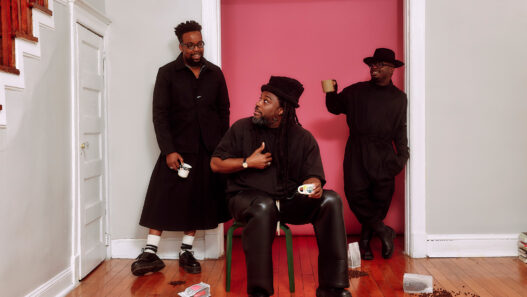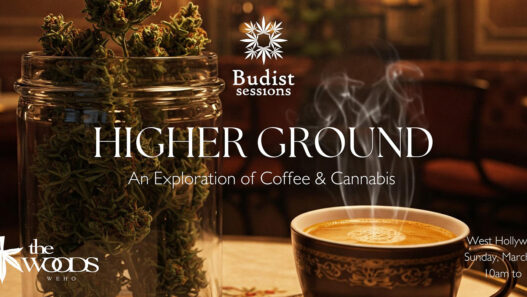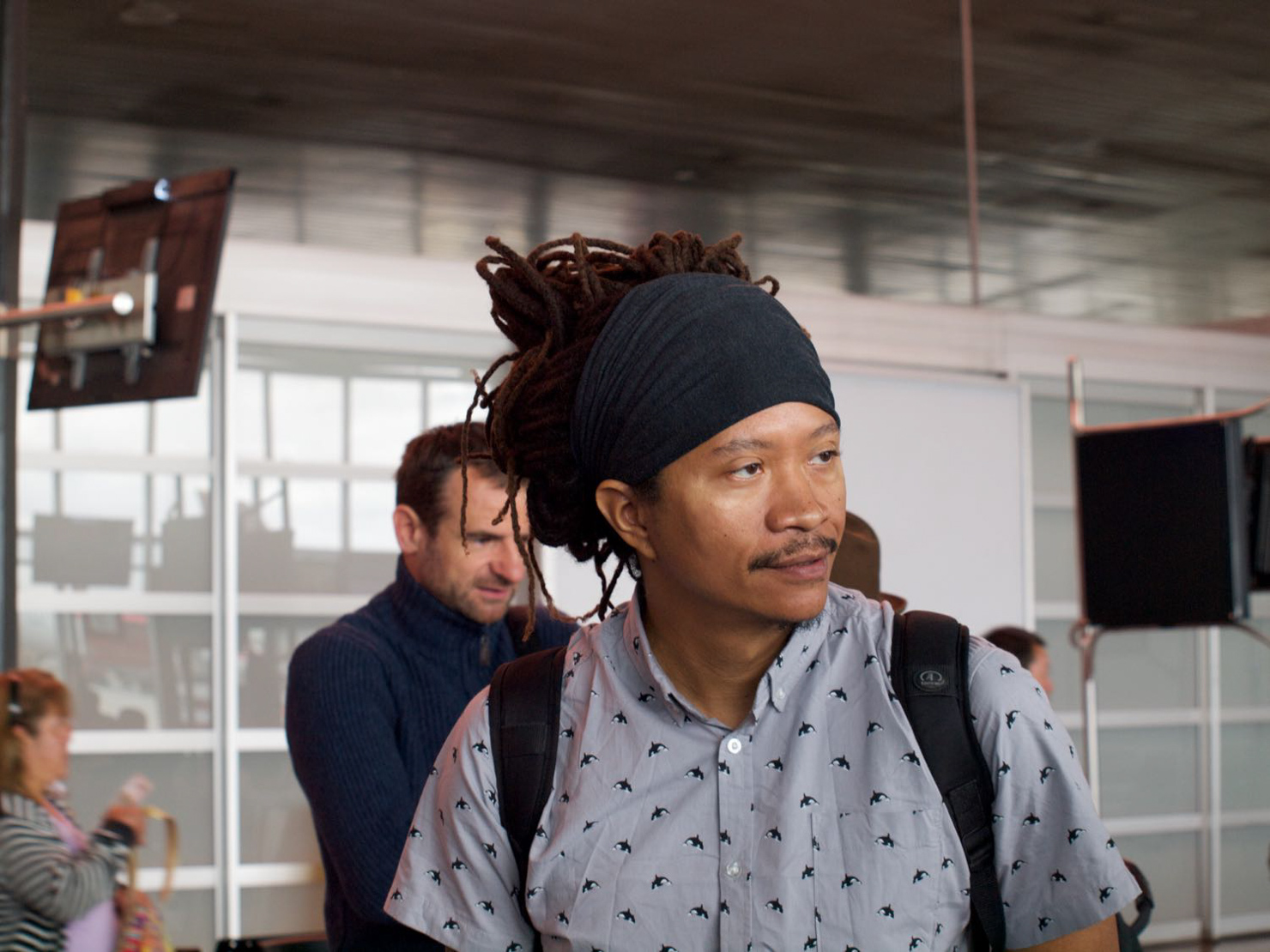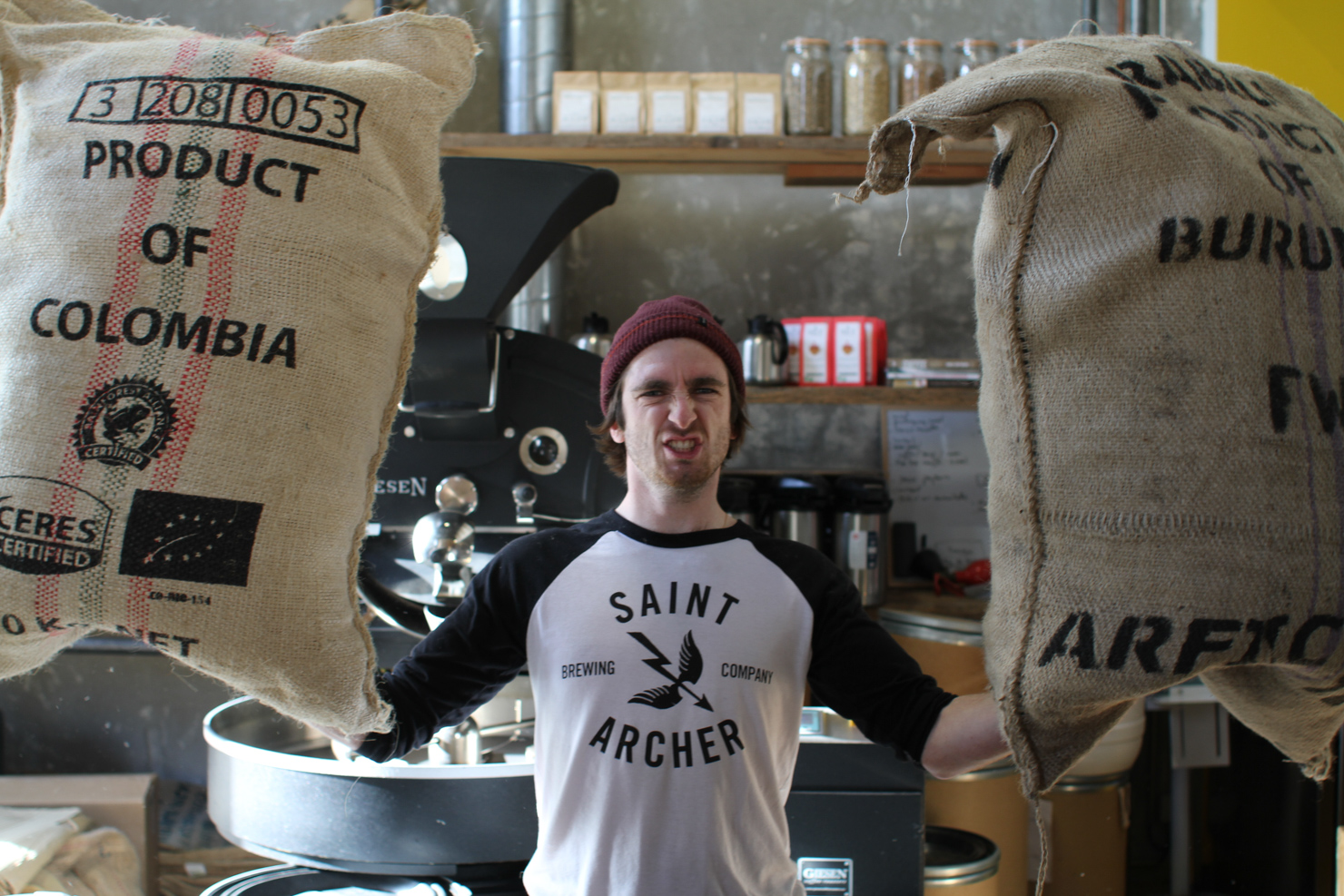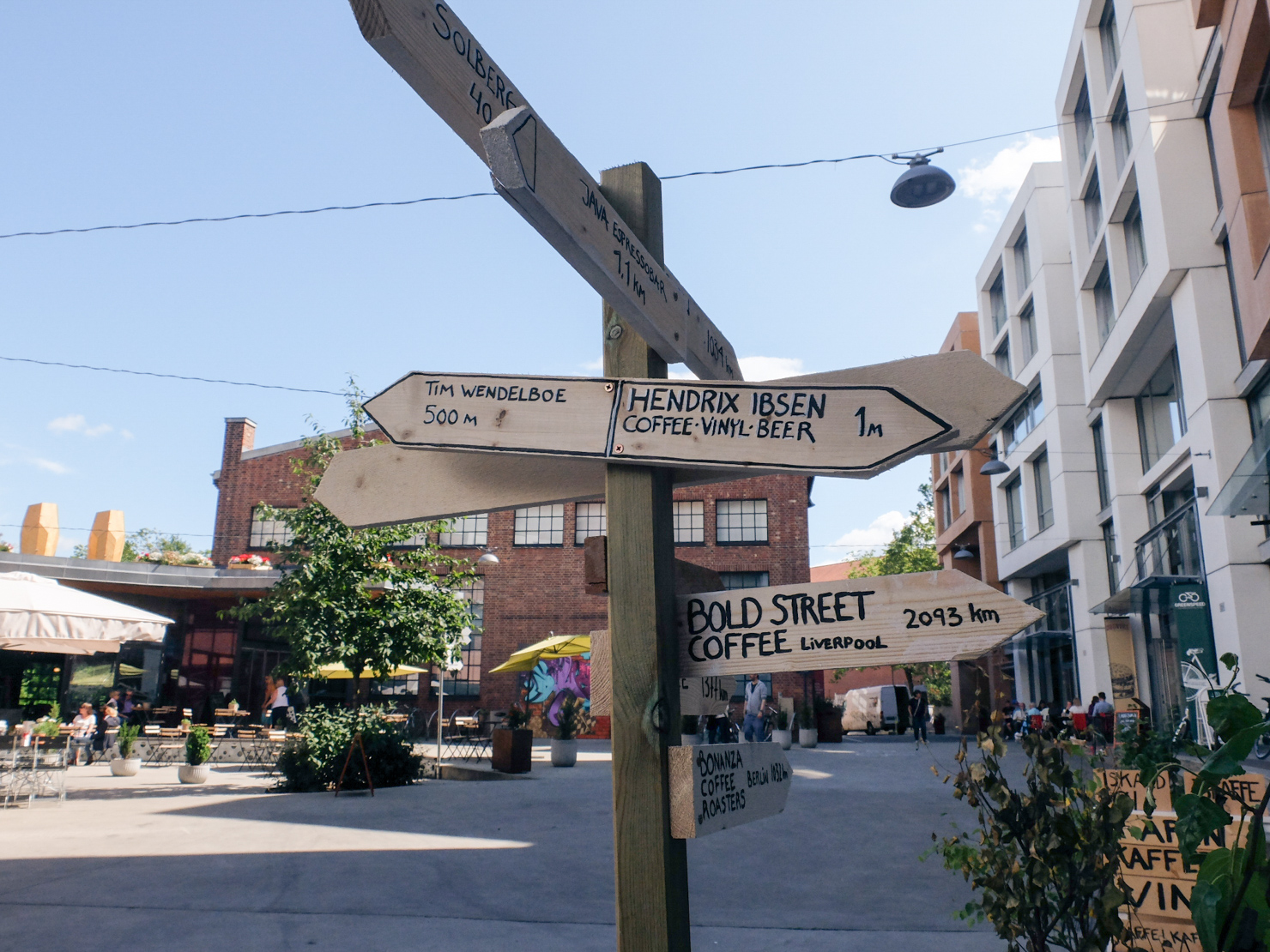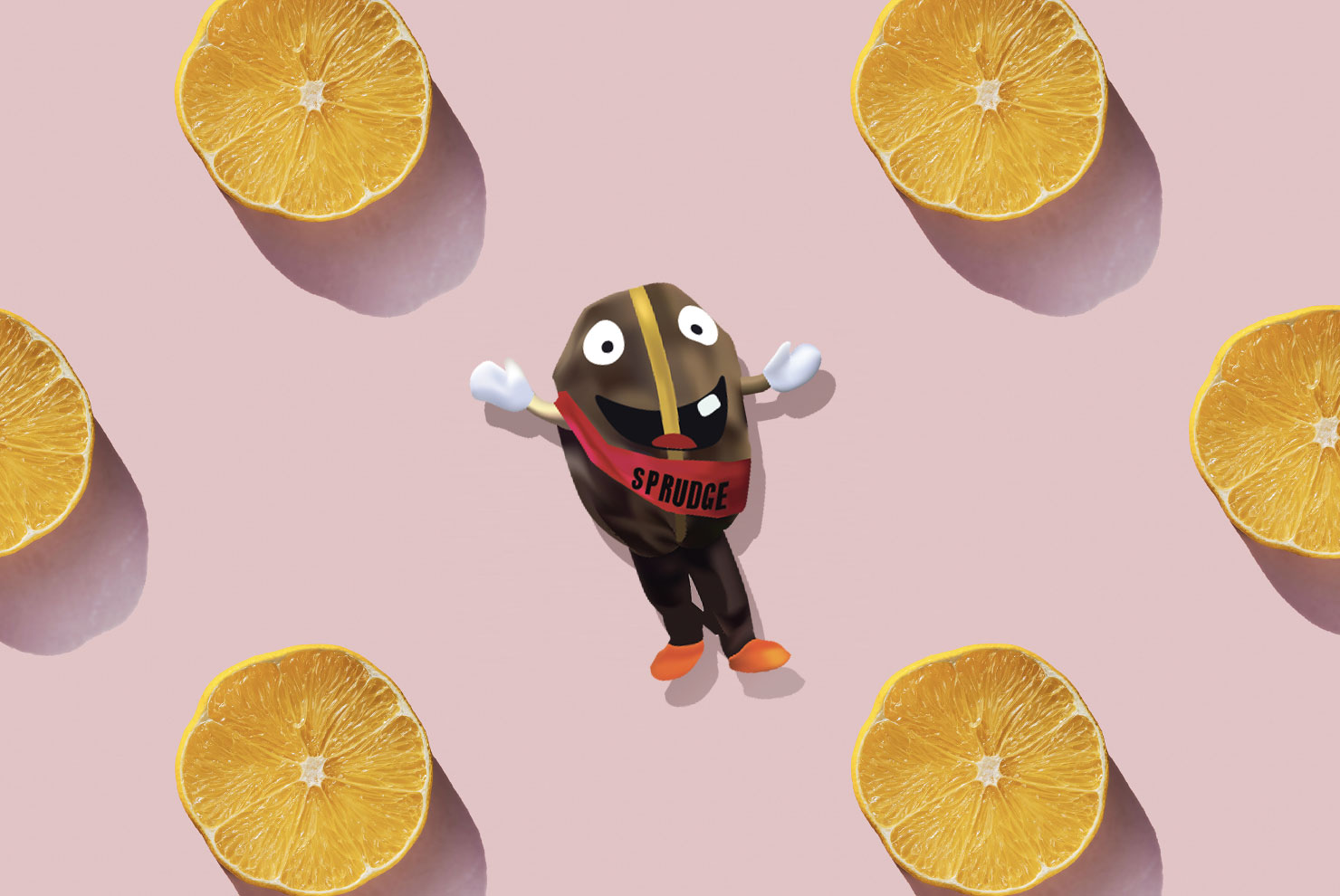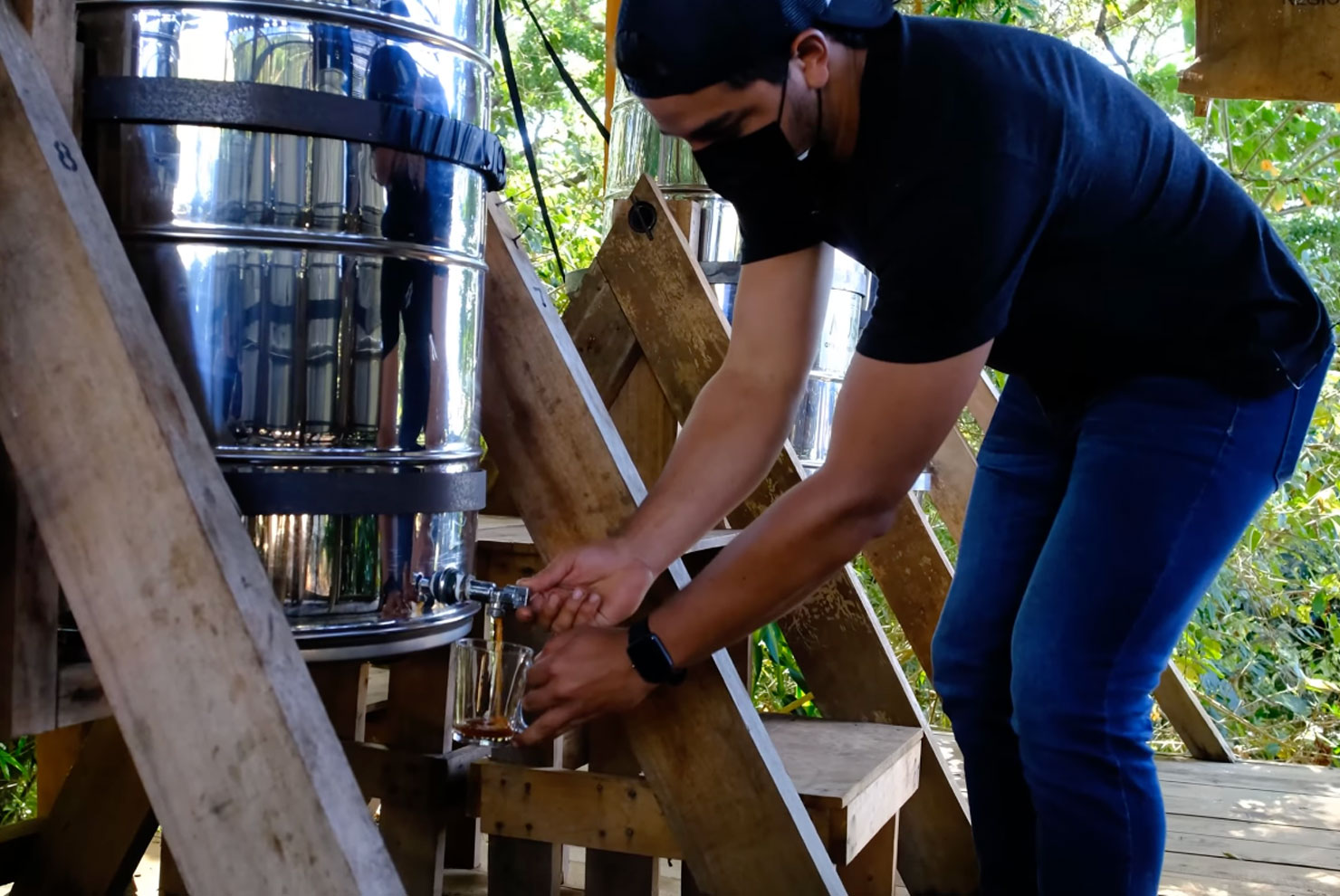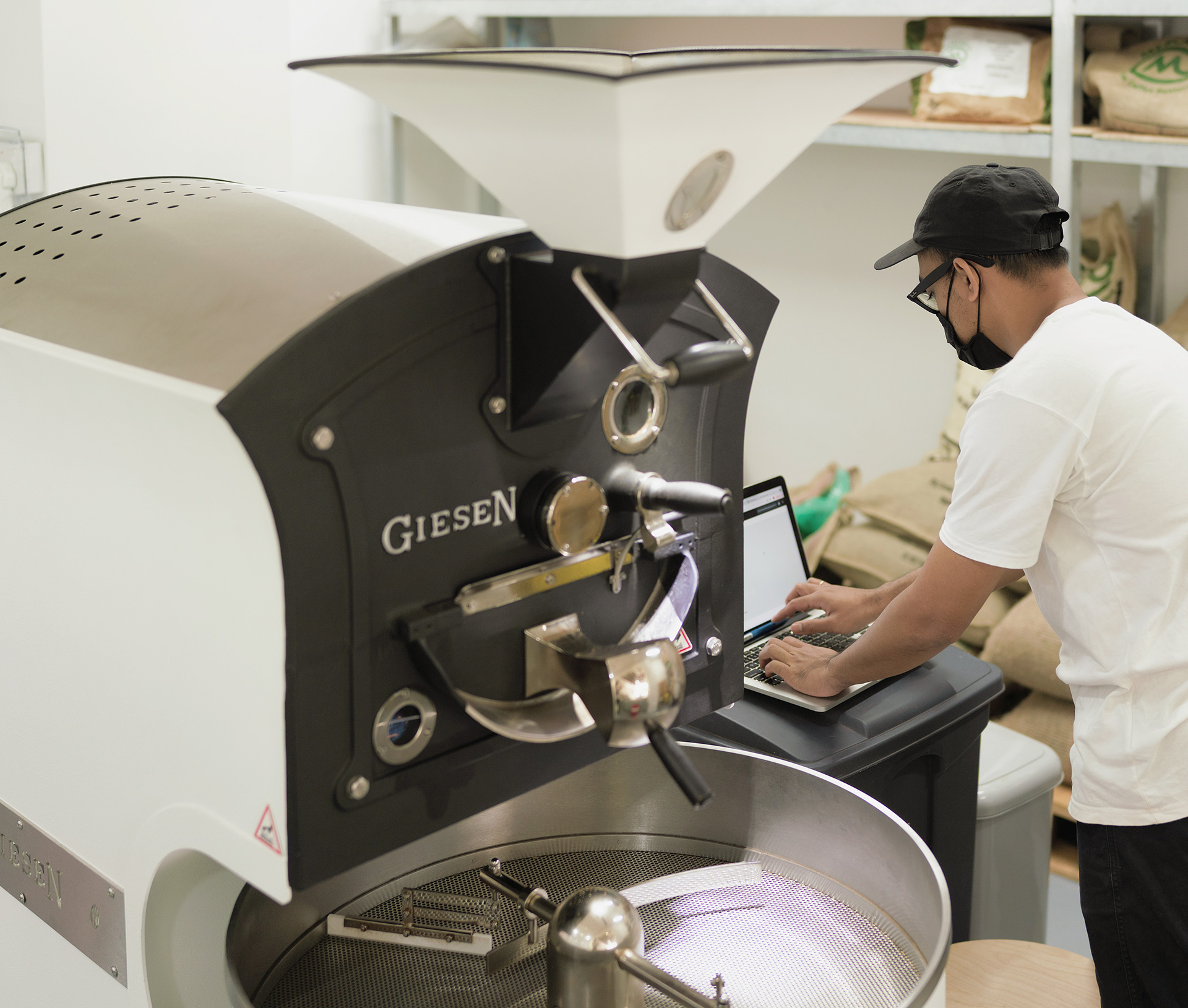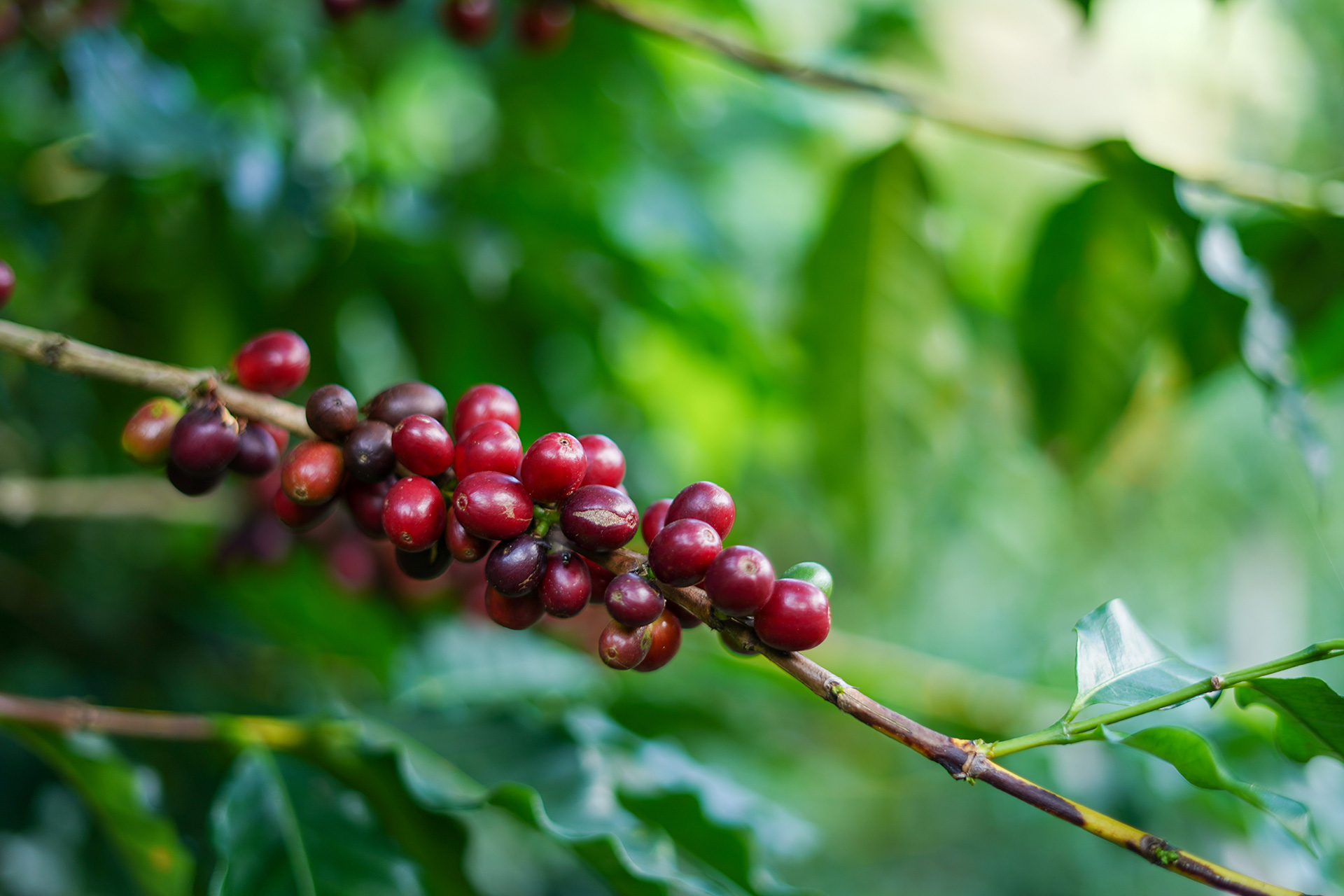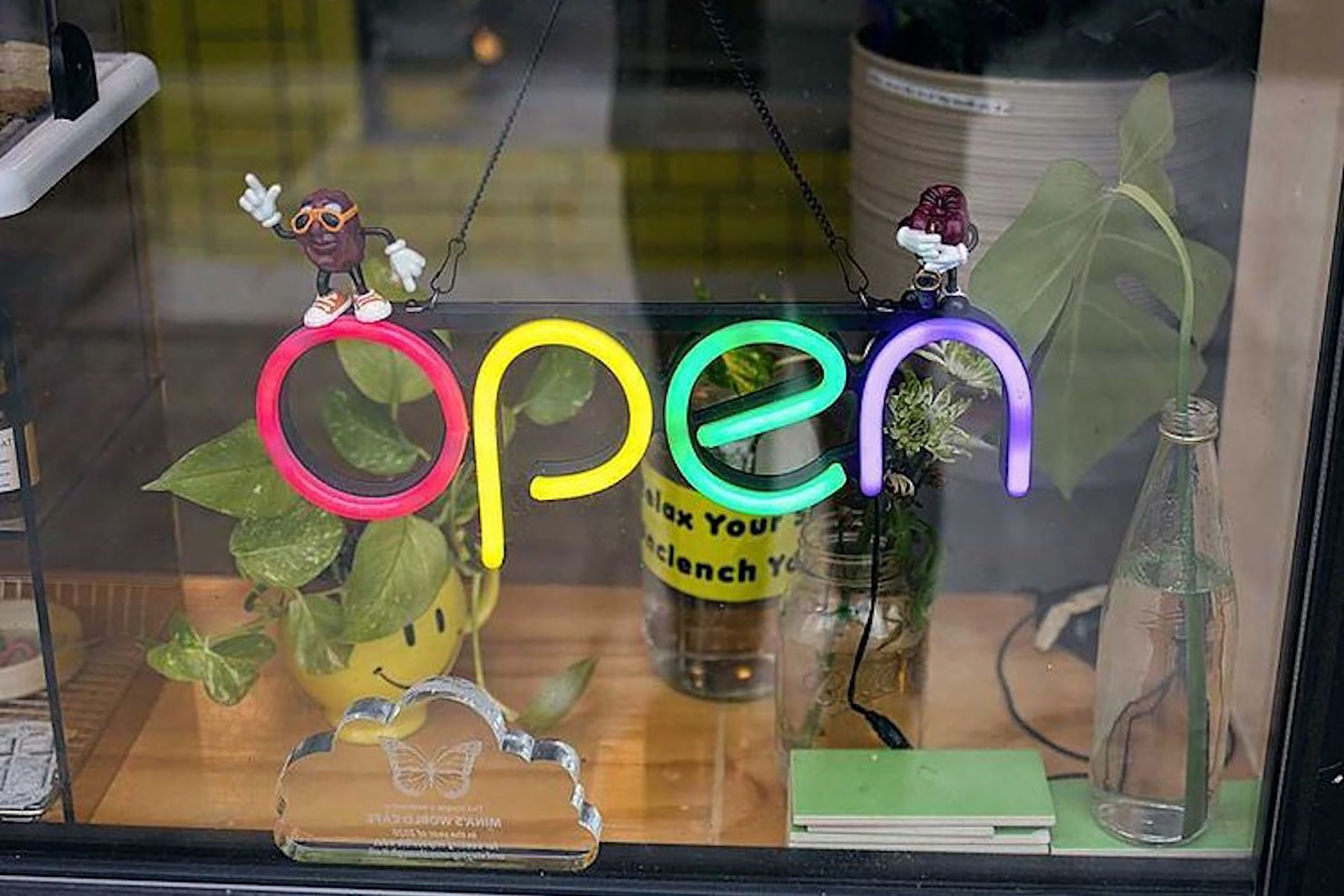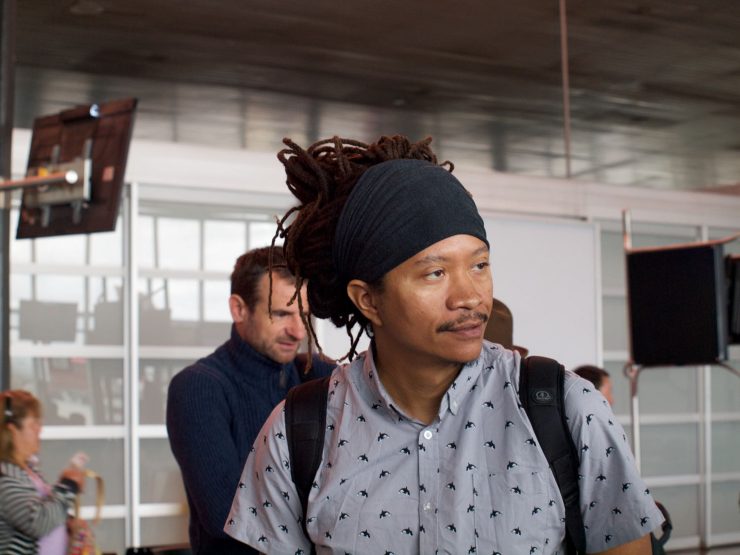
In October 2015, the Cafe Imports Barista Origin Trip took a half dozen or so lucky competition baristas to Colombia for a whirlwind tour of coffee farms, festivals, and horseback rides. Sprudge embedded reporter Emily McIntyre interviewed each of the champion coffee professionals for a series of exclusive spotlight features. Today she’s chatting with Lem Butler of Counter Culture Coffee, the Southwest Regional Barista Champion of the United States.
The “winningest barista in coffee” is also a graceful, ageless father of two (and an accomplished DJ) who’s been working with Counter Culture Coffee in Durham, North Carolina for more than a decade. Lem Butler has been in the competition circuit since 2005 and is known for his witty signature drinks and unflappable calm—which he displayed in Colombia while riding a horse for the first time, being searched by armed guards, and doing the ‘low-reception-dance’ while FaceTiming his family back home. He’s got plenty to say about coffee culture in North Carolina, signature drinks, and origin travel.
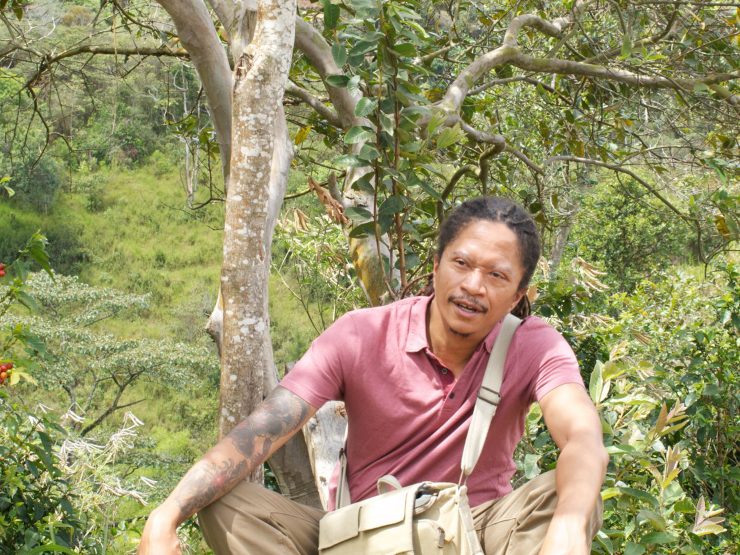
Talk to us about how much Durham and the surrounding area has changed since the years you spent there growing up.
Lem Butler: Raleigh, Durham, and Chapel Hill are considered a triangle, but I think of it all as a big city with boroughs. Chapel Hill is a college town, on the tail end of the urban renewal thing that’s been happening everywhere. In Durham, a lot of old architecture has been repurposed, which I really like. It’s a tobacco and furniture area, so we have a lot of old tobacco warehouses that have been repurposed for condos and all these furniture storefronts from the forties and fifties that have been repurposed for restaurants. Counter Culture isn’t downtown yet, but next year in the first quarter, we are moving into a repurposed grain facility right downtown. We’re celebrating our twenty-year anniversary, and we’ll be in the heart of everything. Which is awesome.
One thing I haven’t seen yet is a really high-quality coffee shop in downtown Durham. There’s a really great multi-roaster shop there, but I feel that when they use roasters from far away, like Intelli and Stumptown, it’s hard to maintain quality. There’s a really awesome donut shop, and they have coffee. There’s a great hotel, and they have coffee. So there’s a lot of room for growth in Durham and Chapel Hill for specialty coffee. In Raleigh, several shops are just killing it.
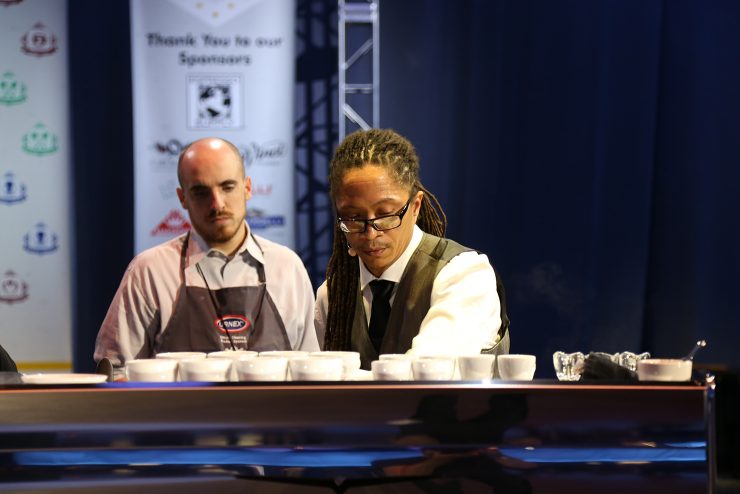
What is your favorite sig drink from all your years competing? Why?
That’s tough! I had a lot of fun with the last one, where I used cashew milk and the whole drink brought together ingredients through their volatile compounds. My first sig drink was very simple: it was maple syrup, steamed milk, and I pulled the espresso through cinnamon sticks and added orange zest. It was very simple, delicious, and balanced.
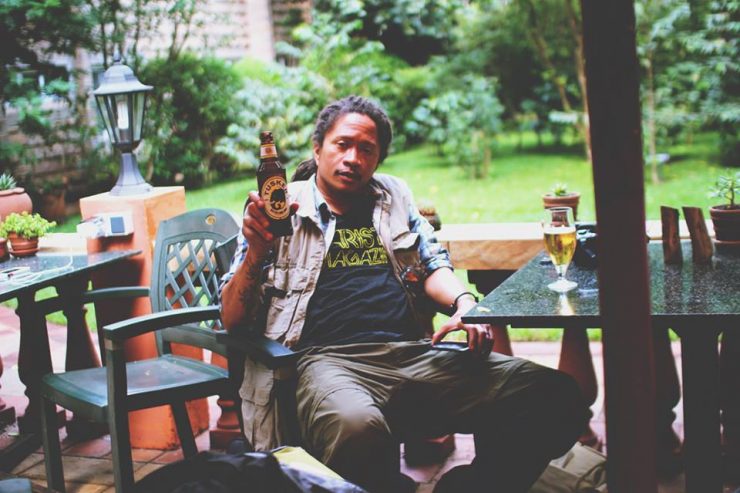
You last traveled to origin with Cafe Imports during their trip to Kenya in 2013. How does Colombia compare?
I was just talking with (Northeast Regional champion) Sam Lewontin about it. Kind of like comparing apples and oranges—so many amazing things we experienced in Kenya you can’t compare to Colombia. I mean, we were in a Land Rover, right next to a lion! But I rode a horse for the first time here in Colombia, and it was incredible. We met some amazing farmers in Kenya, and it was cool because we walked through the process backward, from exporter to dry mill to wet mill to farm. However, this was the first time I got to experience coffee blossoms. This trip has completely changed how I look at coffee varieties.
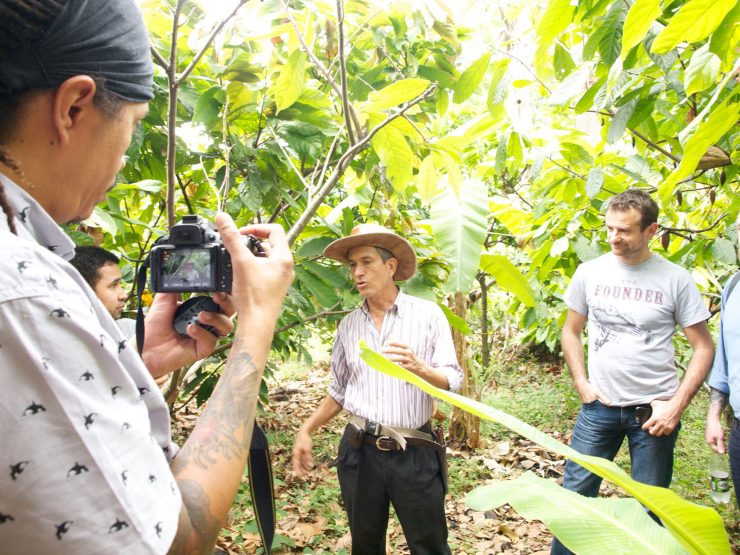
How so?
Something as simple as, hey, castillo and caturra, they should be picked and processed differently. There was a castillo natural that I scored a 94, and it was my favorite coffee on the table. We’ve done similar cuppings at Counter Culture where we tasted castillos and caturras blind, and I favored the caturras. But now, I’m not sure the cupping was fair, because we don’t know the castillos were picked and processed at their full potentials. It’s really mind-blowing.
And now, to quote (North Central Regional champ) Ryan Soeder, the farmer-specific variables really tie into what we are doing as baristas and roasters—we are all linked together, and now we are showcasing what the coffees have to offer.
I came to Colombia with questions about drying, parabolic dryers, and leaf rust. And Elkin (Guzman, of Finca Mirador), man, that dude is amazing. On his farm, I felt like I really understood what he’s doing to fight roya—and I’m still processing it. I’ve got like a thousand photos and countless videos, and I have to figure out how to explain and share his story.
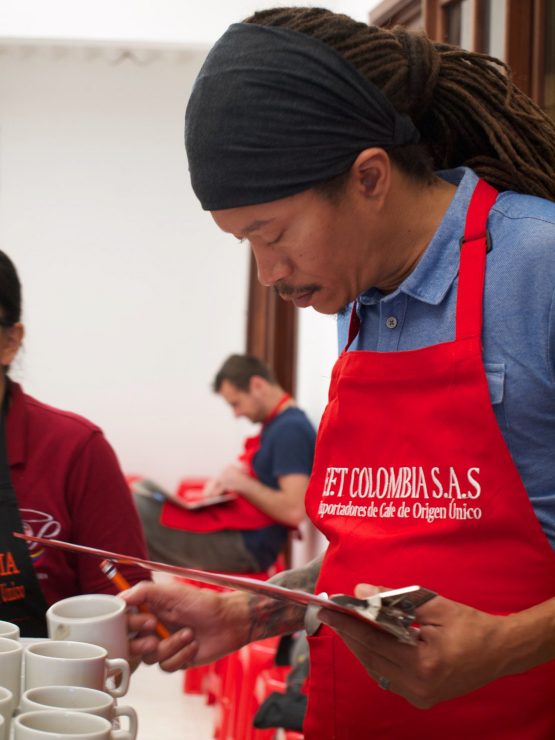
How does your family/coffee life balance work?
It works great. Our roots are growing in North Carolina. We’ll be there for a while. I always imagine myself leaving, but the older I get the more I value family. I’m glad because I feel raising a family in North Carolina is a good thing, and I’m in a good position in the industry with Counter Culture. Everything is flowing really nicely. My son is part of it all, and my daughter will be too. Emerson actually was at the Big Eastern the whole time.
5 regional barista competition wins is quite an accomplishment. What is the competition like now compared to when you first started?
Five years ago, I was joking with (former Counter Culture coffee director, current SCAA Symposium director) Peter Giuliano about the competitions, back when they were starting to shrink down the regions and raise the entry fee, and we said that maybe for working baristas it would turn into a sponsorship thing where we’d have aprons with a list of sponsors who got us there. Now, with no regions, it’s challenging for the working barista. I was fortunate to have a night job DJing when I had to break away for a few days or a week to compete, but it was expensive back then and is even more so now. Without regions and the chance of winning and getting sponsored to go to nationals, it’s just going to be very challenging to the working barista.
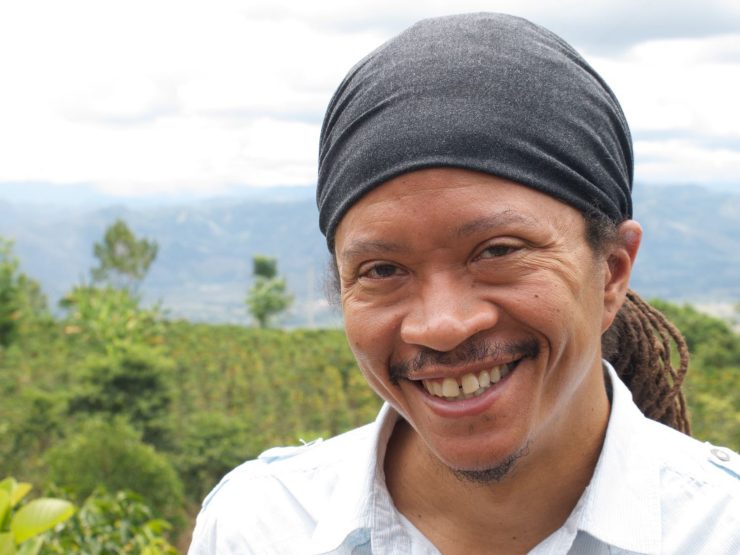
What’s ahead for you, Lem?
So much. I left my first coffee job because I reached a plateau and wanted to open my own shop. Now, the more time I spend with Counter Culture and competitions and the industry, the more I move away from that dream because I feel like I’m chasing something that is never-ending. I could probably spend the rest of my life learning about coffee and only scratch the surface.
Emily McIntyre is a Sprudge contributor based in Portland, Oregon. Read more Emily McIntyre on Sprudge. Photos by Emily McIntyre unless otherwise noted.










